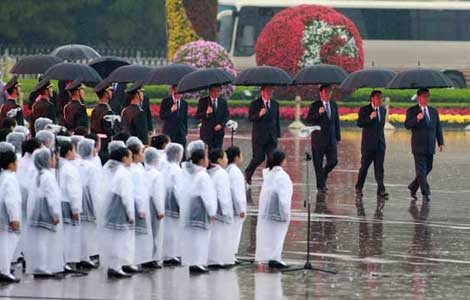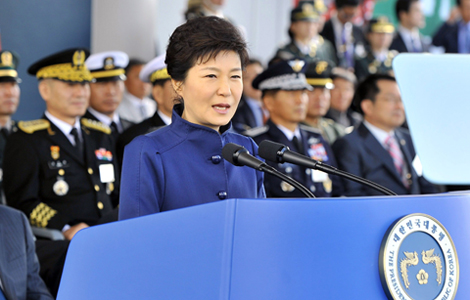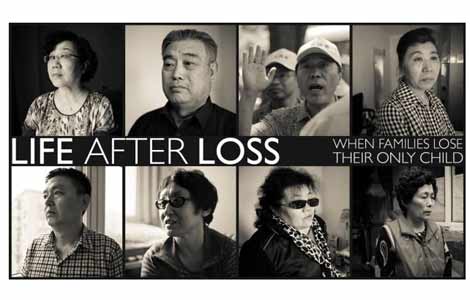Virtual learning broadens horizon
Updated: 2013-10-02 00:10
By Zhang Yue (China Daily)
|
||||||||
In fact, online lectures and courses from prestigious Chinese and overseas universities is not something new in China. A series of courses recognized by the Ministry of Education went online on September 2011, among the most popular courses was Modern Understanding of the Analects for Confucius taught by Yu Dan, a famous professor from Beijing Normal University.
However, Yu Kai says that the latest open online courses such as Coursera's are very different.
"The interaction is the amazing part," he says. "Last year I was taking a course, Leading Strategic Innovation in Organization, and it required group work to produce a research topic. Just think in Coursera, you are actually part of a team of people from all over the world. I ended up working in a group with three other people, one from Sweden, one from Hong Kong and the other one from Brussels. It was great fun."
For some, online courses and other online learning platforms are attractive because they offer gateways into new worlds.
Wang Ye, a 28 year old in Shanghai, was looking for something different and she now enjoys both Coursera classes and lectures from TED, short for Technology, Entertainment and Design, a private non-profit organization in the United States whose lectures are shared online.
"When I first discovered TED and Coursera in 2009, what attracted me to them was the topics they covered. Frankly, they are completely different from what we used to discuss in class."
She has been particularly inspired by some of the TED talks on creativity, the universe and space, as well as feminism. Having studied in Hong Kong for four years and mastered English, she was helping translated the TED lectures so that Chinese viewers without English can watch the lecture with Chinese subtitles.
Wang studied finance at college, which is one of the most popular major for Chinese students, and now works in strategic management in a US-funded enterprise in Shanghai.
"As a Chinese student, we rarely learn about subjects like these at school, even in universities," she says. "I am so inspired by the talks, as the lectures provided me with different ways to look at the world. They made me think that the young people around me can also create our own TED-style talks, selecting and inviting speakers ourselves."
She is now spending almost all of her spare time with TEDx Shanghai, a non-profit organization that is designed to give communities, organizations and individuals the opportunity to stimulate dialogue through TED-like experiences at the local level.
"There are ten of us working in Shanghai, with a group of volunteers, and our mission is to invite people who have performed brilliantly in certain fields to come to Shanghai and give us a talk for free," she says.
The TEDx group in Shanghai invites prominent figures from overseas to give lectures, such as Joy Chen, the former vice-mayor of Los Angeles, during her visit to China.
"The first seminar I remember was in May last year when there were less than 200 people in the audience," she says. "When we did a seminar in November, more than 400 people joined us live."
Last year, she took a personal trip to Taiwan, to select a candidate for TEDxTheGardenBridge, a project that focuses on finding women's value in the modern world.
"What the virtual world is bringing us is resources that we did not dare to imagine even a decade ago. So we need to make the best out of them," she says.

 Search for fishermen continues
Search for fishermen continues
 Li, Serena cruise on, Venus out at China Open
Li, Serena cruise on, Venus out at China Open
 Impasse in Congress shuts down services
Impasse in Congress shuts down services
 Portrait of an amateur Waltz dancer
Portrait of an amateur Waltz dancer
 Honoring heroes at Tian'anmen Square
Honoring heroes at Tian'anmen Square
 14 fishermen rescued, 2 dead, 58 missing after typhoon
14 fishermen rescued, 2 dead, 58 missing after typhoon
 ROK urges deterrence against DPRK's nuke threats
ROK urges deterrence against DPRK's nuke threats
 A blooming success in Tian'anmen
A blooming success in Tian'anmen
Most Viewed
Editor's Picks

|

|

|

|

|

|
Today's Top News
Impasse in Congress shuts down services
US big 3 automakers sales slowdown
Market in antiques booms in Shanghai
Beijing to issue air pollution warnings
China's railways see record traffic
Search for fishermen continues
Market strategist eyes China's rising taste for luxury
Manufacturing field shows positive growth
US Weekly

|

|






